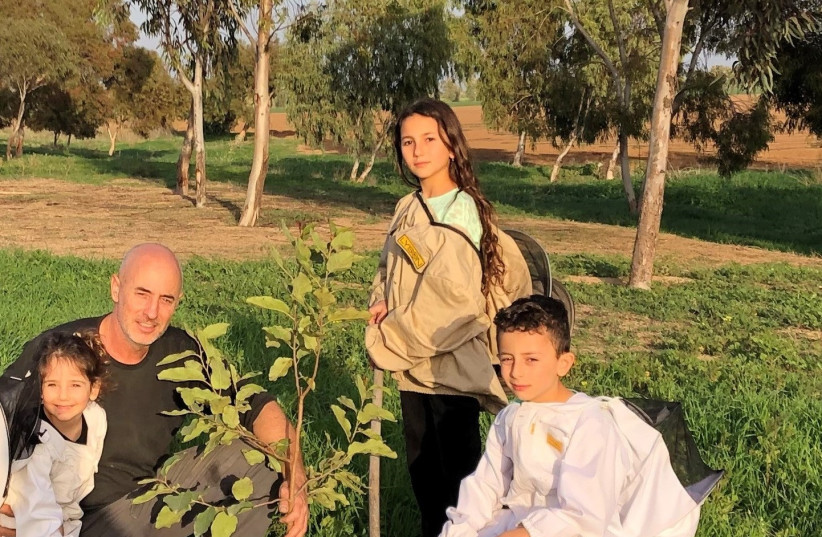On the occasion of Tu Bishvat, KKL-JNF and the Honey Council will plant some 45,000 nectariferous trees and bushes throughout the country, the KKL-JNF and the Honey Council said in a joint announcement on Wednesday.
This year, most of the planting will be carried out in the agricultural areas affected by the war in Israel.
This planting aims to save the endangered honey bee, which is gradually disappearing evey year.
As the main pollinator in nature, the bee is responsible for approximately 80% of the world's crops. The extinction of the species would prevent any future production of food from plants, the statement explained.

Why are bees endangered?
According to the report, bees are disappearing due to the lack of their source of food – nectar.
This is a result, among others, of extreme climactic changes and events that affect the blossoms, along with urbanization and the consequent reduction of agricultural areas.
A response to the disappearance of bees
The large-scale planting project, therefore, seeks to address this problem by expanding the number of already dwindling nectariferous plants, which are the main source of food for the bees, the statement said.
This will also enable the growth of plants during late spring, summer, and autumn, the seasons in which natural vegetation does not flower.
As part of the project, KKL-JNF grows tens of thousands of nectariferous tree seedlings every year for beekeepers, which are planted throughout the country in cooperation with the beekeepers living within the country's borders, as per the report.
Ofi Reich, CEO of the Honey Council, said: "This year it is more important than ever due to the need to preserve the agricultural sector and food production for the residents of Israel, and to re-bloom the agricultural areas in the north and south."
The Environment and Climate Change portal is produced in cooperation with the Goldman Sonnenfeldt School of Sustainability and Climate Change at Ben-Gurion University of the Negev. The Jerusalem Post maintains all editorial decisions related to the content.
